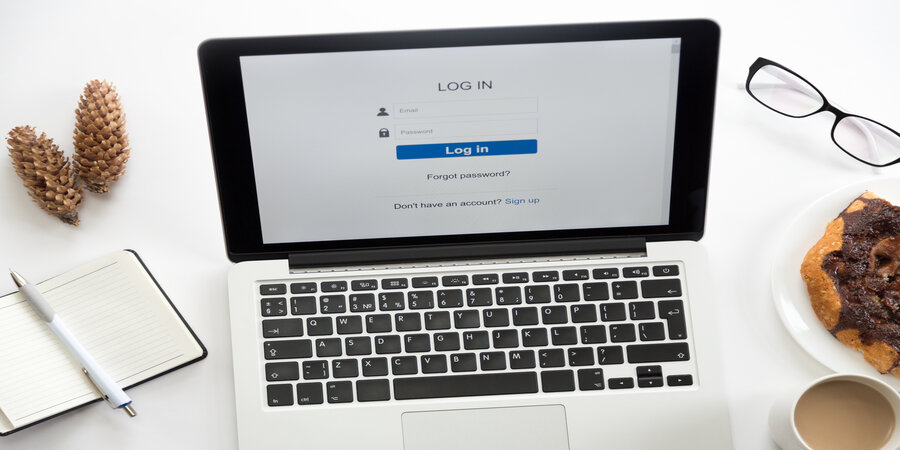Secure Passwords: Rules and Tools

Cyber security should begin with the simplest steps everybody can do on their own. The things that are so elementary that many people ignore and forget their crucial importance, things like a secure password.
Why Should a Password Be Strong?
Think of a password as a key to your digital home or office with all the information about you, your family, and business. Would you like to lock your door with the key having so many duplicates that every second person can open it?
A strong password is the #1 protector to prevent all the problems that may occur. Should a stranger gain access to your account, network, or any secured system, your personal information and other content will be stolen or corrupted. The password keeps that from happening.
Cracking Your Simple Passwords
Here are two hackers' popular targets:
- emails - with plenty of personal information and the ability to restore access to many resources (including some with possible financial operations) by a "Forget your password" function;
- social networking sites - can be used for scamming your relatives, friends, or colleagues
The reasons for cracking your passwords and hacking can be different - from mocking to identity theft or gaining complete access and stealing money, confidential, or top-secret information. Are you ready for such consequences caused by weak passwords? It's the right time to enhance your passwords or change them as a regular password update is a useful safety precaution.
Tips to Help Enhance or Create Passwords
If you want to create a new secure password or enhance the old one, look at these helpful tips. All Do's and Don'ts help make cracking passwords extremely difficult (too time-consuming so that hackers decide cracking isn't worth it).
Do List
- Use password managers and 2FA.
- Use different characters and settings, e.g. uppercase and lowercase letters, symbols and numbers as a combination for one password.
- Create complex and long (at least 8+ but better 12+ characters) passwords.
- If you want to use a 'dictionary' word, change it with symbols or misspell it as much as possible.
- Choose random words, combinations, and characters and be creative.
Don't Do List
- Don't use the worst passwords (see details later).
- Don't use 'dictionary' words alone.
- Don't type in consecutive character strings. Don't use common words or word combinations.
- Don't use personal information about you or your family.
- Don't be obvious.
- Don't use the same password - especially for the most critical accounts.
- Don't share. Don't write down.
Or use reliable random password generators. They'll help you with most of the secure password rules.
More Tricks and Tools for Secure Passwords
2FA
If possible, choose the options with Two-Factor Authentication (2FA), protecting your account or other secured systems from unauthorized access. Two- or multiple-step verification is more secure and harder to hack. Apart from a password, it needs one or two more steps you can often choose: trusted device verification, fingerprint, voiceprint, etc.
Password Managers
There are many password managers in the market. They all can generate random, complex, long and strong passwords you don't have to memorize. There's no need to keep all passwords to all accounts in mind because they are stored in the password manager. Just remember one master password to access the password manager.
Some people may think that putting all their passwords in one place on the cloud is insecure. But it's much stronger with 2FA, tough encryption, and other password managers' protective features.
Worst Passwords Ever: the Easier to Remember the Faster to Crack
One thing that all the worst passwords have in common and can barely be called advantage is that they are easy to remember. Many of them are short and represent strings of consecutive keys or vivid verbal reactions to a password request like 'password.’
The worst passwords list isn't secret, and thanks to regular research, you can find the latest any time. But if you don't enhance the security of your passwords, that information will just make the work of password crackers easier.
Look at some examples of weak passwords:
- only numbers:
123456;
123456789;
12345678;
111111;
123123;
12345;
1234567890;
- only letters:
password;
senha;
qwerty;
iloveyou;
asdfghjkl.
If you happen to find your favourite combination among the passwords above or in any other list of worst passwords, use the knowledge and tips you have learnt and change it right now. We believe you can do much better for your safety and stability.
Don't forget about your password's critical role. Mind your cybersecurity on your own, or reach out to MBS Tech professionals with the best solutions.

Categories
For your convenience, we’ve divided our blog on cyber security into several categories so that you can find necessary articles fast and effortlessly. Just choose the category that evokes your interest and enjoy reading.